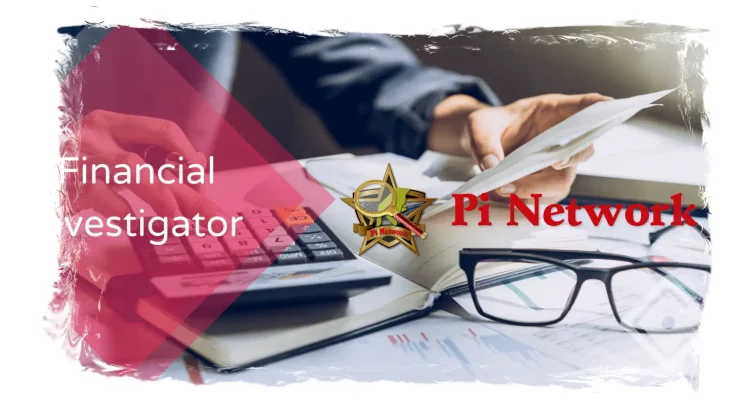
Methodology of Financial Private Investigations
In the realm of private investigations, financial inquiries require a meticulous and structured approach to unravel complex webs of transactions, fraud, and financial misconduct. This article explores the methodology used during financial private investigations, shedding light on the systematic process employed by investigators to uncover financial truths and deliver justice.
1. Define Objectives and Scope:
The first step in any financial private investigation is to define the objectives and scope of the inquiry. Investigators work closely with clients to understand their concerns, identify specific areas of interest, and establish clear goals for the investigation.
2. Gather Information and Documentation:
Investigators gather relevant financial information and documentation from a variety of sources, including bank statements, tax records, financial reports, and legal documents. This involves conducting interviews, issuing subpoenas, and leveraging legal avenues to obtain critical evidence.
3. Forensic Accounting Analysis:
Forensic accountants play a pivotal role in financial investigations, applying specialized techniques to analyze financial records and uncover irregularities or discrepancies. They meticulously examine financial transactions, track funds flow, and identify patterns indicative of fraud or misconduct.
4. Digital Forensics Examination:
In today’s digital age, digital forensics experts employ advanced tools and techniques to examine electronic devices and digital evidence. They recover deleted files, analyze email communications, and trace online activities to uncover evidence of financial wrongdoing.
5. Transaction Tracing and Reconstruction:
Investigators trace the flow of funds through complex financial transactions, reconstructing the sequence of events to identify fraudulent activities or hidden assets. This involves following the money trail, analyzing bank records, and documenting the movement of funds across accounts.
6. Asset Tracing and Recovery:
Asset tracing specialists work to locate and recover assets that may have been misappropriated, concealed, or transferred illicitly. They employ investigative techniques, legal remedies, and international cooperation to track down hidden assets and facilitate recovery efforts.
7. Due Diligence Investigations:
Investigators conduct due diligence investigations to assess the financial integrity and credibility of individuals, businesses, or organizations. This involves verifying financial statements, scrutinizing business practices, and evaluating risk factors to mitigate potential financial losses.
8. Interviews and Witness Statements:
Investigators interview relevant parties, including witnesses, suspects, and stakeholders, to gather firsthand accounts and insights into the financial activities under investigation. Witness statements and testimonies provide valuable evidence and corroborate findings.
9. Legal Compliance and Adherence:
Throughout the investigation, investigators adhere to legal and regulatory requirements governing financial inquiries. They ensure compliance with applicable laws, obtain necessary permissions or warrants, and protect the confidentiality of sensitive information.
10. Reporting and Presentation of Findings:
Investigators document their findings, methodologies, and conclusions in detailed reports tailored to the needs of clients, legal proceedings, or regulatory authorities. They present evidence, analysis, and recommendations in a clear and concise manner to support informed decision-making.
By following this systematic methodology, private investigators can conduct thorough and effective financial investigations, uncovering fraud, misconduct, and financial improprieties to safeguard the interests of their clients and uphold the integrity of the financial system.
Best practices while conducting financial private investigations
1. Define Clear Objectives: Clearly define the objectives and scope of the investigation in collaboration with the client to ensure alignment with their goals and expectations.
2. Adhere to Legal and Ethical Standards: Conduct investigations in compliance with relevant laws, regulations, and ethical guidelines, ensuring the protection of privacy rights and confidentiality of sensitive information.
3. Maintain Confidentiality: Safeguard the confidentiality of information obtained during the investigation to protect the interests of clients and prevent unauthorized disclosure.
4. Utilize Forensic Accounting Expertise: Engage forensic accountants with specialized skills and expertise to analyze financial records, detect irregularities, and uncover evidence of fraud or financial misconduct.
5. Thorough Documentation: Maintain meticulous documentation of all investigative activities, including data collection, analysis, interviews, and findings, to ensure transparency and accountability.
6. Follow Money Trails: Trace the flow of funds through complex financial transactions, meticulously documenting the movement of funds across accounts and identifying patterns indicative of fraudulent activities.
7. Verify Information: Cross-reference and verify information obtained from multiple sources to ensure accuracy and reliability, corroborating findings with documentary evidence and witness statements.
8. Exercise Discretion: Exercise discretion and discretion during the investigation to minimize the risk of alerting suspects or compromising the integrity of the inquiry.
9. Collaborate with Legal Experts: Work closely with legal experts, including attorneys and solicitors, to navigate legal complexities, obtain necessary permissions or warrants, and ensure compliance with legal requirements.
10. Communicate Effectively: Maintain open and transparent communication with clients throughout the investigation, providing regular updates, insights, and recommendations to support informed decision-making.
By adhering to these best practices, financial private investigators can conduct thorough, ethical, and effective investigations, uncovering financial fraud, misconduct, and improprieties to safeguard the interests of their clients and uphold the integrity of the financial system.


